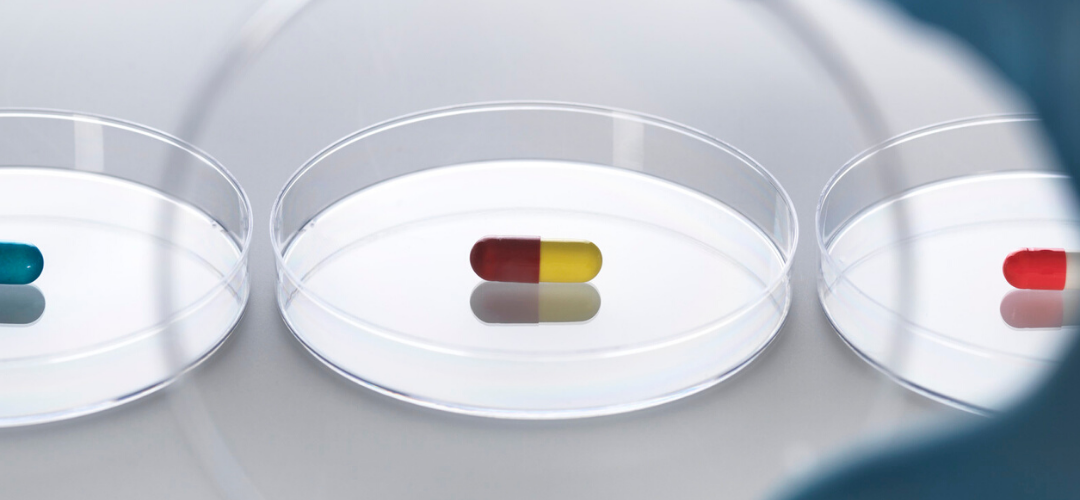by Gabriel Levitt, President, PharmacyChecker.com and Prescription Justice | Jun 12, 2020 | Drug Safety
Generally, I strongly support the World Health Organization (WHO) and its unambiguously important work to save lives through its public health efforts. The backlash against it in the U.S. is simultaneously misguided and politically motivated. I know why. It detracts from our failures in the U.S. to save lives, but there is more to the story. Republicans generally have a greater hostility to international organizations because they view them as tying our hands and/or taking our money to help people in poorer countries. The argument is that U.S. foreign policy must be about U.S. national interests not some idealistic notion of global cooperation.
But here’s the thing. The WHO plays critical roles in polio eradication, vaccines for preventable diseases, providing essential healthcare services, public health surveillance, emergency operations, and, yes, preventing and controlling outbreaks. Here’s a great fact-check document about WHO, specifically its efforts to bring the world together to combat Covid-19. Those efforts do protect and promote our national interests by bringing greater global political stability.
(more…)
by Gabriel Levitt, President, PharmacyChecker.com and Prescription Justice | May 1, 2020 | Drug Safety
In late March, drug giant Bayer Pharmaceuticals, out of the goodness of its heart, agreed to donate three million tablets of chloroquine phosphate to help the Trump administration get this drug into U.S. pharmacies. That’s according to an investigative article in Vanity Fair by Katherine Eban, called:
“‘Really Want to Flood NY and NJ’: Internal Documents Reveal Team Trump’s Chloroquine Master Plan”
How inflammatory?! For Trump lovers, that title has the ring of just more biased, liberal media Trump-bashing. For Trump haters, it’s another reason to hate Trump. This post isn’t about our constant partisan divide or even Bayer or other evil drug companies, although they are referenced. It’s also not about unproven treatments for Covid-19 (that was last week). All parties should be interested in the story behind the story: independent drug testing and its potential importance to determine if a drug is safe and effective.
I’m a big fan of testing prescription drugs to see if they have the right stuff (to put it eloquently). Here’s why: lots of pharma-funded groups and some people at the FDA say don’t buy medicine online from foreign countries because it’s allegedly unsafe. Yet, independent testing of about a thousand prescription drug orders has shown that personal drug importation can and is done very safely. Periodic testing of foreign online pharmacy medication orders over the last decade has proven the efficacy of brand name Celebrex, Lipitor, Nexium, Viagra and Zoloft; generic ciprofloxacin and atorvastatin; and, just last month, hydroxychloroquine and chloroquine phosphate.
(more…)Tagged with: Bayer, Donald Trump, Katherine Eban, Roger Bate
by Gabriel Levitt, President, PharmacyChecker.com and Prescription Justice | Apr 3, 2020 | Drug Safety
When I read fancy-looking international reports that address the problem of counterfeit drugs, too seldom is our work recognized in verifying international online pharmacies in a manner that saves the lives of consumers looking online for affordable medicine. To some extent, that’s because the global pharmaceutical industry is often a major data source for these reports. But a joint effort between the Organization for Economic Cooperation and Development (OECD) and the European Union Intellectual Property Office (EUIPO)” recently recognized PharmacyChecker in a report on counterfeit drugs called “Illicit Trade: Trade in Counterfeit Pharmaceutical Products.” Under the sub-section “Online Pharmacy Authentication,” PharmacyChecker is mentioned as a free resource for consumers to identify trustworthy online pharmacies:
“PharmacyChecker is a free-to-consumer online service which produces reports on the credentials, prices and customer feedback of online pharmacies, focusing mainly on the United States and Canada. It is designed to help users identify reputable and trustworthy businesses. The site publishes a list containing the web addresses and business names of what it considers to be disreputable, dishonest and/or illegal online medicine trade sites.”
It should be clarified that, although our consumer advocacy and writing are focused on Americans, PharmacyChecker online pharmacy accreditation and pricing are there for global consumption.
(more…)Tagged with: Counterfeit Drugs
by Gabriel Levitt, President, PharmacyChecker.com and Prescription Justice | Mar 27, 2020 | Drug Safety
This week, the FDA
issued an alert that the EpiPen, a brand name epinephrine injection that should
help someone having a serious allergic reaction, might not work properly. The
problems include delayed injection, failure to inject, and difficulty removing
the product from its container to commence an injection. If this drug fails to
work on a patient who is in anaphylactic shock, the result can be death. In
fact, such product failures were
reported to have killed seven people in 2017 and led to 35
hospitalizations.
Warnings about bad drugs or medical products are often
associated with imports, such as from India or China – or buying drugs online.
But here we have a homegrown problem, which we actually export.
(more…)Tagged with: EpiPen
by Gabriel Levitt, President, PharmacyChecker.com and Prescription Justice | Feb 7, 2020 | Drug Safety
When you go to your local CVS and Walgreens – and other big
pharmacy chains – are you getting the highest standard of care? Or do they care
more about the billions of dollars in profits they make each year and how to
increase those profits? Have these pharmacies gone rogue? Millions of
medication errors have caused illness and death in America – and this problem
has recently come into greater focus as pharmacists increasingly blow
the whistle on their employers.
Yet the National Association of Boards of Pharmacy (NABP)
doesn’t seem to be paying much attention to medication errors at U.S.
pharmacies. Instead, they choose to spend their time “educating” the public
about the dangers of prescription drug importation, warning Americans that it’s
not safe to buy lower-cost medicines from other countries over the Internet.
They have even included PharmacyChecker.com and this very blog (!) on a list of
over 12,000 “Not Recommended Sites” – websites that they have categorized as
safety threats from importation that put people and their families at risk. We
have sued them for defamation and antitrust violations.
Here’s proof that the NABP are paying relatively little
attention to medication errors compared to internet pharmacies. On the NABP’s
website, under the category of Medication
Errors, you’ll see seven posts and nothing since 2015. Under the
category Internet
Pharmacies, you’ll find 122 posts.
(more…)Tagged with: National Association of Boards of Pharmacy (NABP)
by Gabriel Levitt, President, PharmacyChecker.com and Prescription Justice | Jan 10, 2020 | Drug Safety
This post is mostly a story about a very well manufactured,
safe and effective, foreign
version of an FDA-approved drug. These drugs are normally far less
expensive than the FDA-approved version sold in the U.S. and arguably just as
safe. The FDA can prevent the importation of such drugs – but the agency
is actually encouraged by law not to do so if the import is for personal
use only. It’s also a story about consumers and their providers navigating
conflicting public information about buying less expensive medicines online
from foreign countries.
A friend of mine, who has very difficult to control
cholesterol, was prescribed Livalo, an FDA-approved brand of the drug pitavastatin.
Let’s call him John. With his insurance, Livalo still costs John about $310 for
a three-month supply – about 90 pills. He doesn’t want to pay that much if he
can help it. John knows about our company, PharmacyChecker. He went to our site
to discover that brand-name Livalo (pitavastatin)
costs only $90 for a three-month supply at the lowest-cost
PharmacyChecker-accredited international online pharmacy: a savings of 71%. That
wasn’t enough to convince John to move forward with the purchase. Why not? That
brand-name pitavastatin, sold in Turkey, is sold under the name Alipza –
not Livalo.
(more…)Tagged with: Alipza, livalo








